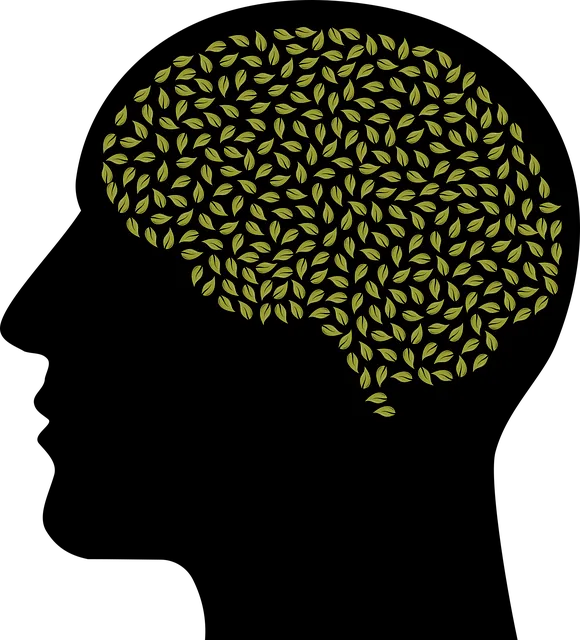The Kaiser Permanente mental health facility in Lafayette prioritizes cultural competency as a core practice for providing tailored, empathetic mental health care. Through training that focuses on active listening, observation, and learning from diverse communities, staff create an inclusive environment that builds trust with patients. This results in better patient engagement, accurate diagnoses, and personalized treatment plans that respect individual cultural identities. Strategic training methods include interactive workshops, role-playing, and case studies, empowering professionals to navigate complex cultural landscapes effectively, ultimately improving patient outcomes and satisfaction in diverse communities.
Cultural competency training is an essential pillar in modern healthcare, especially at institutions like Kaiser Permanente’s Lafayette Mental Health Facility. This article explores why such training is critical for improving patient care and outcomes within diverse communities. We examine the impact of cultural sensitivity programs, offering practical strategies for engaging healthcare providers through interactive activities and real-world applications. Additionally, we discuss successful implementation methods and metrics to ensure long-lasting positive change at Kaiser Permanente Lafayette.
- Understanding Cultural Competency in Healthcare: A Need for Empathy and Awareness at Kaiser Permanente Lafayette Mental Health Facility
- The Impact of Cultural Sensitivity Training on Patient Care and Outcomes
- Strategies for Effective Training: Engaging Activities and Real-World Applications for Healthcare Providers
- Implementing and Measuring Success: Ensuring Long-Term Change and Continuous Improvement
Understanding Cultural Competency in Healthcare: A Need for Empathy and Awareness at Kaiser Permanente Lafayette Mental Health Facility

At Kaiser Permanente Lafayette Mental Health Facility, understanding cultural competency goes beyond mere awareness; it demands empathy and a deep sense of connection to diverse communities. This approach is crucial in providing quality mental health services tailored to the unique needs and beliefs of every patient. In today’s diverse society, where Kaiser Permanente mental health professionals interact with individuals from various ethnic backgrounds, religions, and cultural norms, fostering cultural competency is not just a best practice—it’s an imperative.
Empathizing with patients’ experiences, especially when it comes to anxiety relief and cultivating positive thinking, requires a nuanced understanding of their cultural contexts. For instance, what works for one patient in terms of mental wellness journaling exercises might not be suitable or comfortable for another. Mental health professionals at Kaiser Permanente Lafayette are encouraged to go beyond surface-level knowledge by actively listening, observing, and seeking guidance from the communities they serve. This enables them to offer personalized care that resonates with each patient’s individual journey towards mental wellness.
The Impact of Cultural Sensitivity Training on Patient Care and Outcomes

Cultural sensitivity training plays a pivotal role in enhancing patient care at healthcare facilities like Kaiser Permanente’s mental health center in Lafayette. By equipping staff with tools to navigate diverse cultural backgrounds, these programs foster a more inclusive environment. This is particularly crucial in mental health services, where building trust and understanding can significantly impact treatment adherence and outcomes.
The training equips professionals with improved communication skills, enabling them to connect better with patients from various ethnic, social, and economic backgrounds. This approach not only improves patient satisfaction but also promotes more accurate diagnoses and effective interventions. For instance, training in social skills and crisis intervention guidance allows healthcare providers to respond sensitively during high-stress situations, ensuring that cultural beliefs and values are considered in the delivery of care, such as when addressing specific fears or taboos related to mental health. Moreover, initiatives focused on inner strength development can empower patients to share their unique experiences, leading to more personalized treatment plans that respect individual cultural identities.
Strategies for Effective Training: Engaging Activities and Real-World Applications for Healthcare Providers

Effective cultural competency training for healthcare providers at facilities like Kaiser Permanente’s mental health facility in Lafayette should incorporate engaging activities and real-world applications. Interactive workshops, role-playing scenarios, and case studies based on diverse patient populations can help professionals develop a deeper understanding of cultural nuances and improve their ability to provide empathetic care.
Integrating strategies such as Depression Prevention, Self-Care Routine Development for Better Mental Health, and Coping Skills Development into the training curriculum is essential. These approaches not only equip healthcare providers with practical tools but also foster an environment where patients feel heard, respected, and supported. By combining theoretical knowledge with hands-on experiences, training programs can empower professionals to navigate complex cultural landscapes, ultimately enhancing patient outcomes.
Implementing and Measuring Success: Ensuring Long-Term Change and Continuous Improvement

Implementing cultural competency training within healthcare organizations, such as Kaiser Permanente’s mental health facility in Lafayette, involves a strategic approach to ensure long-term success and positive change. This process begins with well-designed programs tailored to address specific cultural needs, incorporating evidence-based practices and engaging diverse staff members. The key lies in making these initiatives an integral part of the organization’s culture, fostering an environment where emotional regulation and self-care practices are prioritized.
Regular evaluation and feedback mechanisms are essential for measuring the effectiveness of training. By organizing stress management workshops and promoting open dialogue, healthcare providers can continuously improve their cultural sensitivity. This ongoing commitment to learning and adaptation ensures that staff members are equipped to deliver culturally competent care, enhancing patient outcomes and satisfaction, especially in diverse communities like Lafayette.
Cultural competency training is a game-changer for healthcare providers, particularly at institutions like Kaiser Permanente mental health facility Lafayette. By fostering empathy and awareness, these programs can significantly enhance patient care and outcomes, ensuring that every individual receives respectful and culturally sensitive treatment. The strategies outlined in this article provide a roadmap for effective implementation, encouraging continuous improvement and long-term positive change within the healthcare system.






